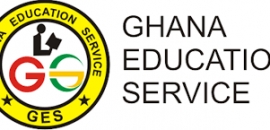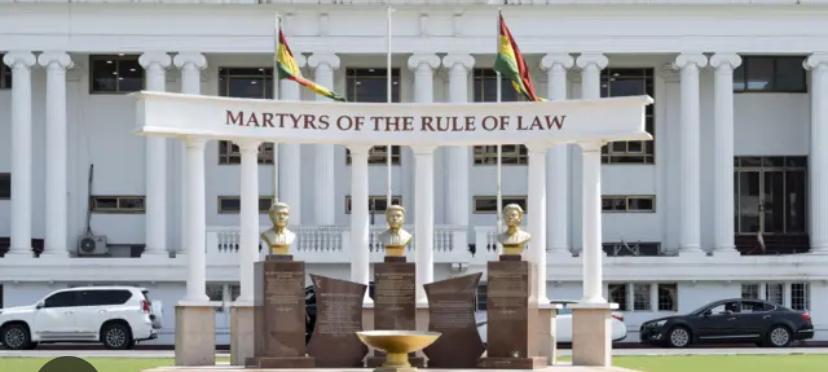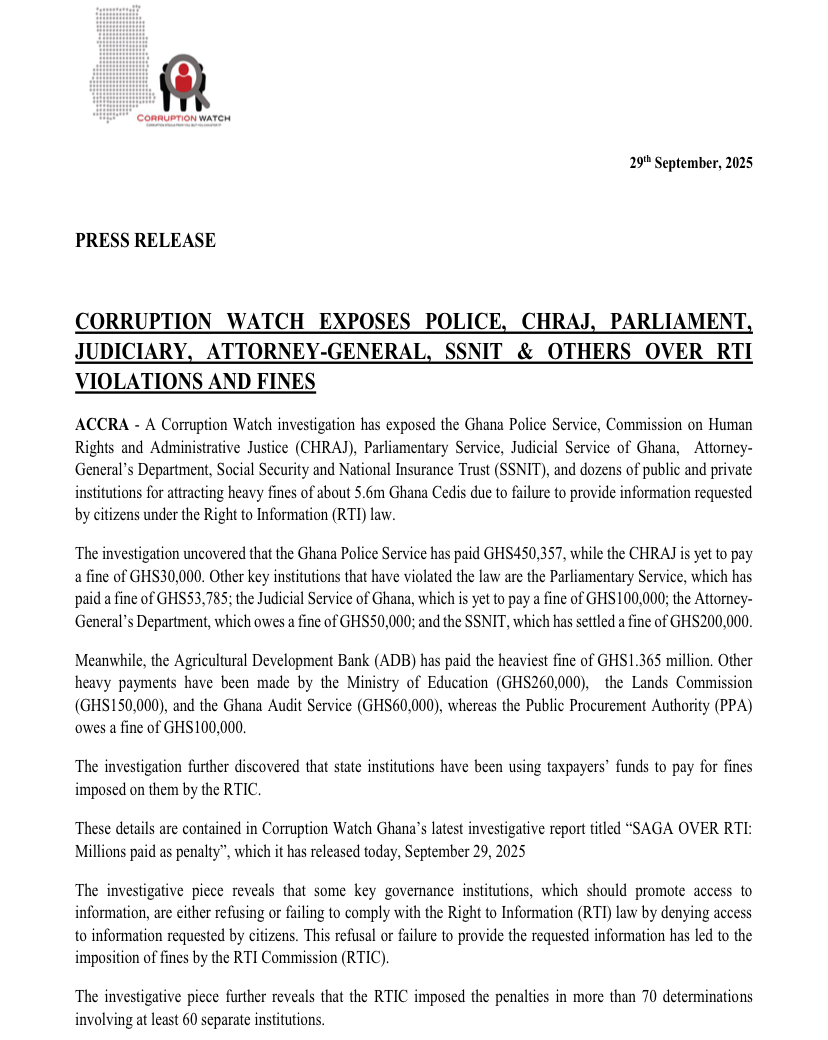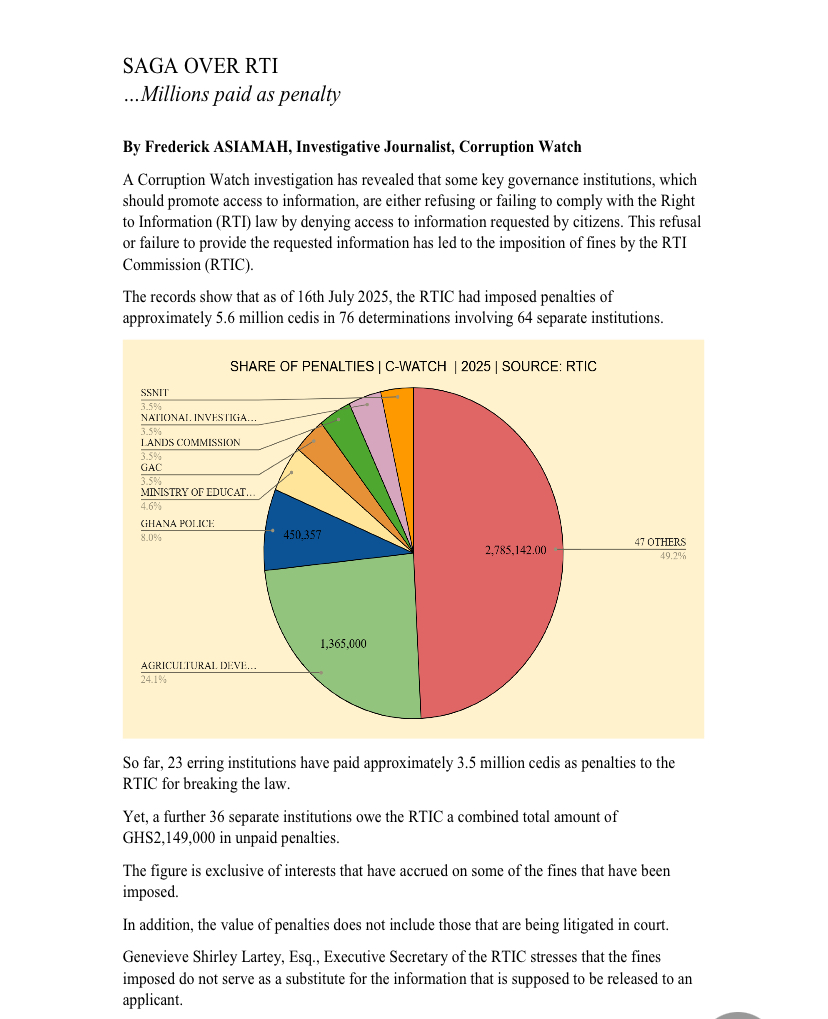
GES Warns Public
Sep 21, 2025
by Ekow Benyah Sep 29, 2025

September 29, 2025
A damning investigative report has revealed that Ghana's key state institutions have paid a staggering 5.6 million Ghana Cedis in fines for systematically denying citizens their constitutional right to information, raising serious questions about transparency and accountability in governance.
The investigation, conducted by Corruption Watch Ghana between February and July 2025, exposes how institutions entrusted with upholding the law and serving the public have repeatedly violated the Right to Information (RTI) Act.
The report, titled "SAGA OVER RTI: Millions paid as penalty," details how over 70 separate determinations by the RTI Commission (RTIC) resulted in financial penalties against at least 60 different public institutions.
Agricultural Development Bank (ADB) leads the list with the highest penalty of GHS 1.365 million, followed by several critical state institutions:
Several institutions have yet to settle their fines, including:
Perhaps most troubling is the revelation that these fines have largely been paid using taxpayer funds, effectively meaning Ghanaians are paying for the privilege of being denied access to information that is rightfully theirs.
"State institutions have often utilized taxpayers' money to pay these fines, sparking concerns about accountability and transparency in managing public resources," the report states.
The investigation reveals a disturbing pattern of repeat offenders:
The widespread non-compliance with RTI laws by institutions meant to uphold transparency represents a significant setback for Ghana's democratic governance. The Right to Information Act was designed to empower citizens to hold public officials accountable and participate meaningfully in governance.
The fact that key oversight bodies such as CHRAJ, the Judicial Service, and the Parliamentary Service are among the violators is particularly concerning, as these institutions are supposed to champion transparency and good governance.
The revelations are likely to intensify calls for stronger enforcement mechanisms and personal accountability for officials who obstruct citizens' access to information. Critics argue that allowing institutions to pay fines with public funds removes the deterrent effect and creates a perverse incentive structure.
The RTI Commission has not yet commented on the report's findings or outlined plans to address the systemic non-compliance.
Ghana's Right to Information Act, passed in 2019 and operationalized in 2020, guarantees citizens the right to access information held by public institutions. The law is crucial for transparency, accountability, and citizen participation in governance.
The continuing violations by major state institutions suggest significant challenges in implementing the law and a concerning resistance to transparency within Ghana's public sector.


Visit www.vistanewsgh.com

Sep 21, 2025

Oct 28, 2025

Oct 10, 2025

Jan 28, 2026

Jan 28, 2026

Jan 26, 2026

Mar 28, 2025

Oct 07, 2025